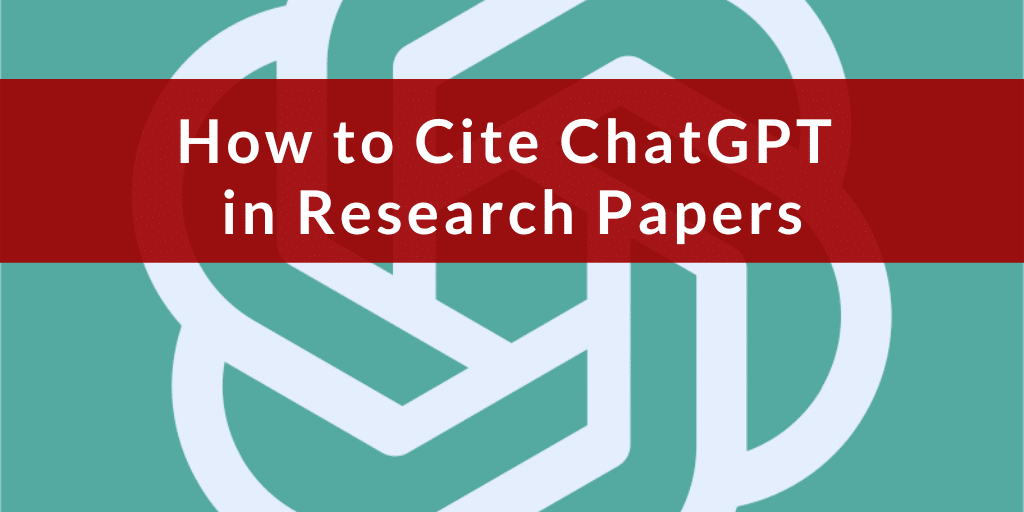Summary
This blog post provides a guide on how to properly cite ChatGPT in research work, highlighting the importance of transparency, credibility, and academic integrity. It offers specific citation examples in APA, MLA, and Chicago styles, demonstrating how to include details like the version of ChatGPT used, the date of interaction, and retrieval information. The post also emphasizes best practices such as documenting sessions with ChatGPT, cross-checking its information, and clarifying its role in the research. Proper citation ensures that the use of AI tools like ChatGPT is acknowledged correctly, maintaining the quality and honesty of academic work.
Artificial intelligence (AI) tools like ChatGPT are becoming more integrated into research and academic work, so it isit’s essential to understand how to cite these sources properly. Citing ChatGPT properly not only gives credit to the tool but also maintains the integrity and transparency of your research. Whether you’re using ChatGPT to generate ideas, gather information, or draft text, it’s essential to acknowledge its use. This guide will walk you through how to cite ChatGPT in different citation styles, ensuring your research remains credible and well-documented.
Why cite ChatGPT?
Citing ChatGPT is essential for several reasons:
Transparency: It shows that part of the information or ideas presented were generated with the help of an AI tool.
Credibility: Proper citations help maintain the credibility of your research, making it clear which sources contributed to your work.
Academic integrity: Acknowledging the use of AI tools maintains academic integrity and prevents any accusations of plagiarism.
General guidelines for citing ChatGPT
When citing ChatGPT, you should include information about the version used, the interaction data, and the context or nature of the generated content. Since ChatGPT is an interactive AI and not a traditional source with a fixed author, some adjustments to the citation format are needed.
Citing ChatGPT in different citation styles
Below are examples of citing ChatGPT in different commonly used citation styles:
1. APA style
In APA format, a typical citation for ChatGPT would look like this:
In-text citations:
When you mention the tool in your text: (OpenAI, 2024)
If quoted directly: “ChatGPT provided insights on citation practices” (OpenAI, 2024).
Bibliography:
OpenAI. (2024, August 28). ChatGPT (Version 4) [Large Language Models]. Retrieved from https://www.openai.com/chatgpt
2. MLA Style
In MLA format, citing ChatGPT requires a slightly different approach:
In-text citations:
(OpenAI)
Works Cited:
OpenAI. ChatGPT, Version 4, August 28, 2024, www.openai.com/chatgpt. Accessed August 28, 2024.
3. Chicago Style
For Chicago style, you can format your citation as follows:
Footnotes:
OpenAI, ChatGPT (Version 4), August 28, 2024, https://www.openai.com/chatgpt.
Bibliography:
OpenAI. ChatGPT. Version 4. August 28, 2024. https://www.openai.com/chatgpt.
Best practices for using and citing ChatGPT
Document your sessions: Record your conversations or interactions with ChatGPT, noting dates and important points. This will help you accurately cite the AI tool.
Use ChatGPT responsibly: Remember that ChatGPT generates responses based on the data it was trained on. Always cross-check information provided by ChatGPT with reliable sources to ensure accuracy and reliability.
Make ChatGPT’s role clear: When using content generated by ChatGPT, specify how it contributed to your work. For example, mention whether it helped inspire new ideas, draft sections, or provide background information.
As AI tools like ChatGPT are becoming more prevalent in research, understanding how to cite them correctly is crucial to maintaining the integrity and transparency of academic work. By following the guidelines and examples provided in this guide, you can ensure that your citations are accurate and your research remains credible. Properly citing ChatGPT not only gives credit to the technology but also enriches the academic conversation by acknowledging diverse sources of information and inspiration.
Stay ahead in your academic and research endeavors by adopting and properly integrating AI tools like ChatGPT into your work. This proactive approach will not only increase the quality of your research but will also keep you at the forefront of technological advancements in your field!













